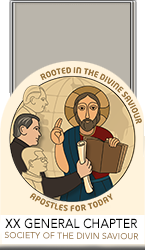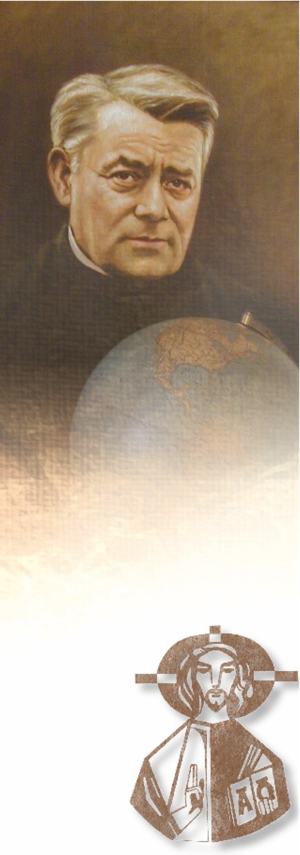
Bl. Francis Jordan
It was Gurtweil, a small place in southwestern Baden, just a few kilometers from the district town of Waldshut, close to the Swiss border, that became the hometown of Father Francis Mary of the Cross Jordan, founder of the Salvatorians. Father Francis Jordan was born on June 16, 1848, second son to Lawrence and Notburga nee Peter. On the following day he was baptized at the local parish church with the name John Baptist.
Being brought up in a poor family, he was not able to realize his dream of becoming a priest, although as a teenager he had already become aware of his vocation at the moment of his First Communion. After finishing primary school he worked as a laborer and painter-decorator, traveling in what was then Germany.
He noticed the difficult spiritual situation of his homeland and of the other European countries. The people would turn away from God and leave the faith. The Church was limited in performing its mission by the state (Kulturkampf). All these experiences made Jordan's faith stronger and his conviction of being called to the priesthood clearer. He finally decided to follow his vocation and to begin studies in theology.
In 1869 he started private lessons with his priest friends in Waldshut; after that, he studied at the gymnasium in Constance. The time of secondary studies required much effort from Jordan but, at the same time, despite his difficulties with sciences, he developed his talent for languages. For the graduation exam he presented an essay in eight European languages and another one in four other languages.
You are welcome to send information of any graces received through the intercession of Blessed Francis Jordan to:
Postulation Office of the Salvatorians
Via della Conciliazione 51
00193 Rome, Italy
tel. +39 06 686 291
We invite you to visit our Motherhouse and pray at the relics of our Founder. Please contact us in advance so we can welcome you.
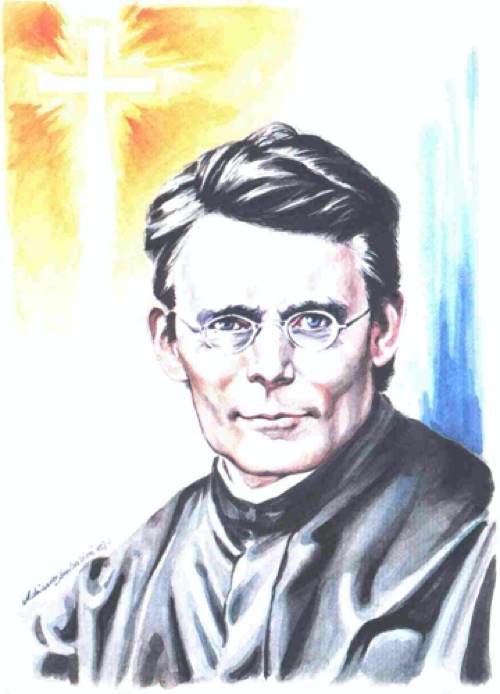
Great Salvatorians
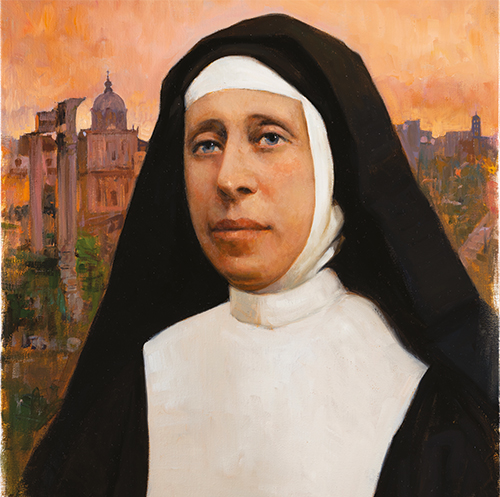
Bl. Mary of the Apostles
First Superior of the Salvatorian Sisters
First Superior General of the Congregation of the Sisters of the Divine Saviour
Therese von Wüllenweber was born in Castle Myllendonk, Mönchengladbach, Germany, on February 19,1833. She went to the boarding school of the Benedictine Sisters in Liège, Belgium, from 1848 to1850. She attended Jesuit inspired parish missions in 1853 and 1857 and took part in a retreat in 1856; these made a great impression on her and fired her with a missionary vocation.
In an attempt to clarify her vocation in 1857, she entered the Sisters of the Sacred Heart in Bloemendaal, Netherlands. However, she left the order in March, 1863, unable to commit herself to a congregation whose main purpose was education.
In further attempts to try her vocation, she spent short periods with the Sisters of Perpetual Adoration and the Visitation Sisters. In 1875, in the presence of her spiritual director Dr. von Essen, she made a private vow committing herself to the missions. In part of a former convent in Neuwerk, Germany, she cared for orphans and gave older women the opportunity to live a common life. However, it remained difficult for her to fully realize her vocation and she continued to search for a missionary community.
On April 25, 1882, she answered an advertisement placed by Father Bonaventura Lüthen for the Apostolic Teaching Society. The founder, Father Francis Jordan, visited her on July 4, 1882, and stayed for three days. He made a deep impression on her and on September 5, 1882, she became the first female member of the First Degree of the Apostolic Teaching Society.
In 1883 Father Jordan established a group of sisters in Rome but asked Mother Mary to remain in Neuwerk as a sister of the Catholic Teaching Society. However, problems occurred with the sisters in Rome and on October 13, 1885, they were separated from Father Jordan; they continue today as the Sisters of the Sorrowful Mother.
In 1888 Father Jordan called Mother Mary to Rome. He found a house for the sisters in Tivoli and on December 8, 1888, she and two others received the habit from Father Jordan. On March 25, 1889, she made perpetual vows in the Sisters of the Catholic Teaching Society and was appointed superior. In December, 1890, three sisters were sent to the first mission of the Society in Assam, India. By the end of 1892 there were about 50 sisters and novices in the house in Tivoli and they were being sent out to many different parts of the world.
In 1894 a typhus epidemic broke out in Tivoli and seven sisters died; this finally prompted the move to Rome. Mother Mary of the Apostles was unanimously elected as superior general at the first general chapter of the Sisters of the Divine Savior in 1905. She died on December 25, 1907, after a short illness.
In recognition of her personal virtues, trust in divine providence, and commitment to the missions, she was beatified on October 13, 1968. Her feast day is September 5.
Fr. Pancratius Pfeiffer
Successor to the Founder as General
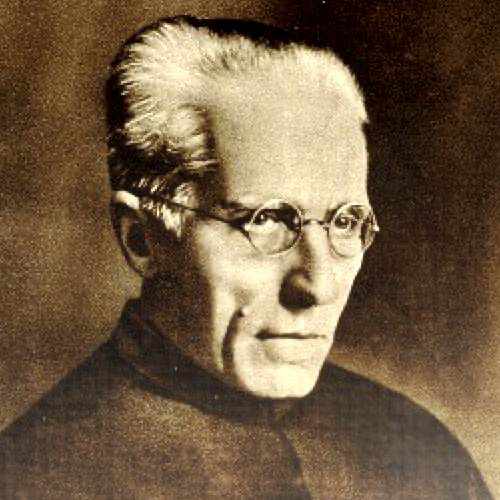
Successor to the Founder as Superior General
Markus Pfeiffer was born on October 18, 1872, in Brunnen, Germany, and joined the Society of the Divine Savior as Frater Pancratius on March 21, 1889. After his ordination on May 30, 1896, he was assigned to the Motherhouse and his duties included being private secretary to the Founder. At the first general chapter of the Society, he was elected procurator general and kept this position until 1915. He thus made many contacts with leading figures in the Curia at the Vatican. During these years he also became one of Jordan’s consultors. The third general chapter, held in Fribourg in Switzerland in 1915, elected him superior general. Jordan’s necrology tells how this election came about. “Because of these circumstances (Jordan’s scrupulosity) he found certain matters of government difficult, and this got worse as time went on. The Reverend Father (Jordan) was himself aware of this and at the beginning of the third general chapter in the autumn of 1915, he decided to renounce his re-election as superior general... this change of government touched him deeply, being so involved in the Society... he told me ‘I couldn’t bear it if I were not on such good terms with you.’”
Father Pancratius led the Society for thirty years. He always used the Founder as his model. He considered Jordan’s personal virtue and saintliness a basis for governing as a religious superior. Referring to the farewell scene of Elijah and Elisha, he wrote after Jordan’s death: “Let, I pray you, your spirit be twofold in me.”
As superior general Pfeiffer considered it his holy duty to encourage the members to strive for perfection, according to the Constitutions. Most effective for him was the oral and written exchange of thought. This form of contact had great influence among the members of the Society at that time. His answers and special illustrations to questions about religious life are like a book, presenting an ideology valuable then and now. He regarded this exchange of ideas as more important for a young, developing religious community than for an older religious order, whose spirit and practices are fixed and confirmed through centuries of tradition. Along with Father Bonaventure Lüthen, he considered the lack of a tradition a challenge for a young religious society.
His talents, diligence, realism, and decisiveness made Pfeiffer an excellent, undisputed authority, in spite of a financial crisis in 1930, which overshadowed his period of office. This is seen especially in the great vacuum caused by his death from a street accident on May 12, 1945. His influence on the development of the young Society over so many years is undeniable. He shared his own formation, influenced by Jordan and Lüthen and enriched by his spiritual and theological development in Rome.
During the Nazi occupation of Rome in 1943 and 1944, Pfeiffer acted as an intermediary between Pope Pius XII and the German authorities. He managed to have many people released from prison and saved many lives. Every day he would visit Regina Coeli prison and another in Via Tasso, returning with a freed prisoner, also from among those who had been sentenced to death. He tried to help all people, regardless of their religion or political views. His charitable attitude earned him the name of the Angel of Rome. He also made an important contribution towards saving some Italian towns from being bombed.
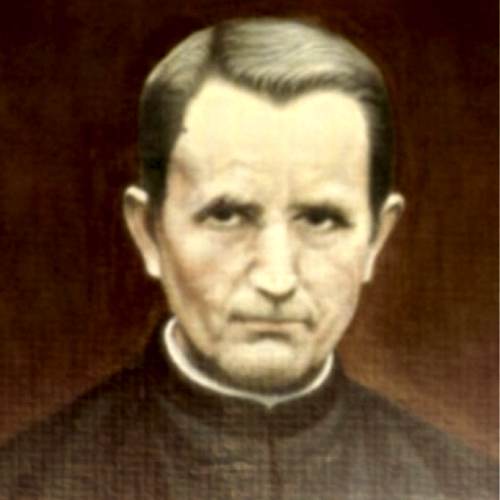
Fr. Bonaventura Lüthen
First cooperator of our Founder
First cooperator of our Founder
Bernhard Lüthen was born in Paderborn, Germany on May 5, 1846. His brother Charles became a priest and this inspired him to do the same. He was ordained as a diocesan priest on March 15, 1872. He soon founded the first Association of Catholic Mothers in the Diocese of Paderborn. To aid this new ministry he began a magazine called Monika. His literary talents were quickly noticed and he was invited to become editor of theAmbrosius, a magazine for priests involved in education and in the direction of groups of laity.
In the Spring of 1881 he met Father Francis Jordan and became fascinated by his ideas for founding a new religious society which would unite groups of priests and laity in spreading and defending the Catholic faith. He wrote a pamphlet on Jordan’s work and became editor of Der Missionär, one of the magazines of the new Society. In S. Brigida in Rome on December 8, 1881, he made private vows as a member of the First Degree of the Apostolic Teaching Society, later to become the Society of the Divine Savior. In 1883 he received the habit from Father Jordan and took the religious name Bonaventura.
Father Bonaventura was the first and most important of Father Jordan’s early collaborators. The new Society needed to make itself and its program better known and with his skills as a writer and editor he was just the right man for this task. In the early years he travelled extensively in the German speaking countries seeking lay collaborators, benefactors, and subscribers for the magazines of the Society.
After some time it became clear that the most important task was the education of young aspirants to the priesthood who were coming to Rome to join the Society in large numbers. In 1884 Lüthen returned to Rome fromGermany and, while continuing as an editor, he became Prefect of Candidates and Novice Master. He was gradually able to hand these tasks over to others as the Society grew and he was more and more needed as the trusted representative of the Founder. He wrote a vast number of letters and instructions on behalf of Father Jordan, who knew that he could absolutely rely on his judgment. Until his death on December 10, 1911, he remained Jordan’s closest collaborator and advisor.
Father Bonaventura Lüthen was considered by all his confreres to be a wise and holy man and, although his personal religious discipline was severe, the enduring impression he gave was of his “goodness and kindness.” As the first disciple and the ‘pen’ of the Founder, he made a crucial contribution to the administration and expansion of the fledgling Society and to the fulfillment of its task of making the Savior more widely known and loved. His cause for beatification was introduced in 1943.
Fr. Otto Hopfenmüller
First Salvatorian Missionary
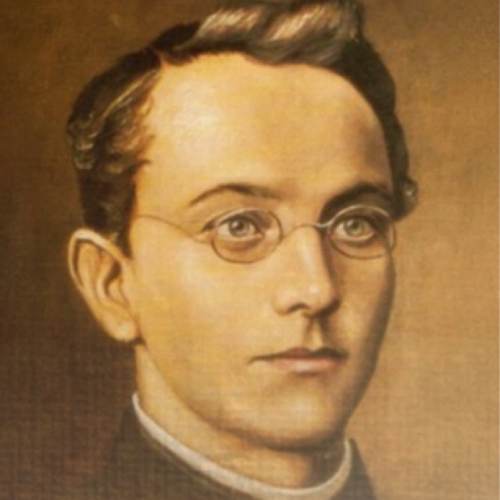
First Salvatorian missionary
Lorenz Hopfenmüller was born on May 29, 1844, in Weismain, Germany. He became a priest of the Diocese of Bamberg and was ordained on October 6,1866, at the age of twenty-two. After completing doctoral studies at the University of Würzburg, he was appointed to St Martin’s Parish in Bamberg. In 1872 he became editor of the Bamberger Volksblatt, a Catholic newspaper. As a direct result of his involvement in the apostolate of the press, he came into conflict with the anti-Catholic authorities and was imprisoned several times.
In 1878 he was transferred to Reichmannsdorf and then in 1882 to Seussling. He did much to combat the extreme poverty he encountered in both these towns. He came into contact with Father Bonaventura Lüthen of the Catholic Teaching Society, who placed advertisements for Der Missionär in his newspaper.
After the death of his mother, he felt able to fulfil his long term plan of joining a religious community, which would enable him to go to the foreign missions. In 1887 he went to Rome and became a member of the Catholic Teaching Society. In the novitiate he took the religious name Otto. The founder, Father Francis Jordan, soon entrusted him with the formation of the candidates. He also used his skills as a journalist for the benefit of the Society.
In 1889 he was sent, together with the twenty-three year old Father Angelus Münzloher and Brothers Joseph Bachle and Marianus Schumm, to Assam in North East India, where he became the first Superior. The work of this new mission was carried out with great zeal and energy. Father Otto wrote both a catechism and a life of Jesus and Mary in the Khasi language, and he had begun to translate the Schuster’s Bible Stories. However, he fell ill with meningitis as a result of a heat stroke and died on August 21,1890.
Father Otto Hopfenmüller was a man with many talents and tremendous energy and it was a great encouragement to the newly formed Society when he joined. In his own words he says, “I have chosen to join the newly founded Catholic Teaching Society in Rome because it is in need of workers and because it has a good spirit, and in it I think I will be able to bear fruit for the Kingdom of God.”
It is certain that Father Jordan would not have been able to take on the responsibility for the mission in Assam without the knowledge that the leadership of the mission could be entrusted to Father Otto. Father Jordan knew he could rely on his energy, deep spirituality, and extensive priestly experience. Although Father Otto Hopfenmüller died at the early age of forty-six, no one could doubt that he lived an accomplished and fulfilled Christian life.







